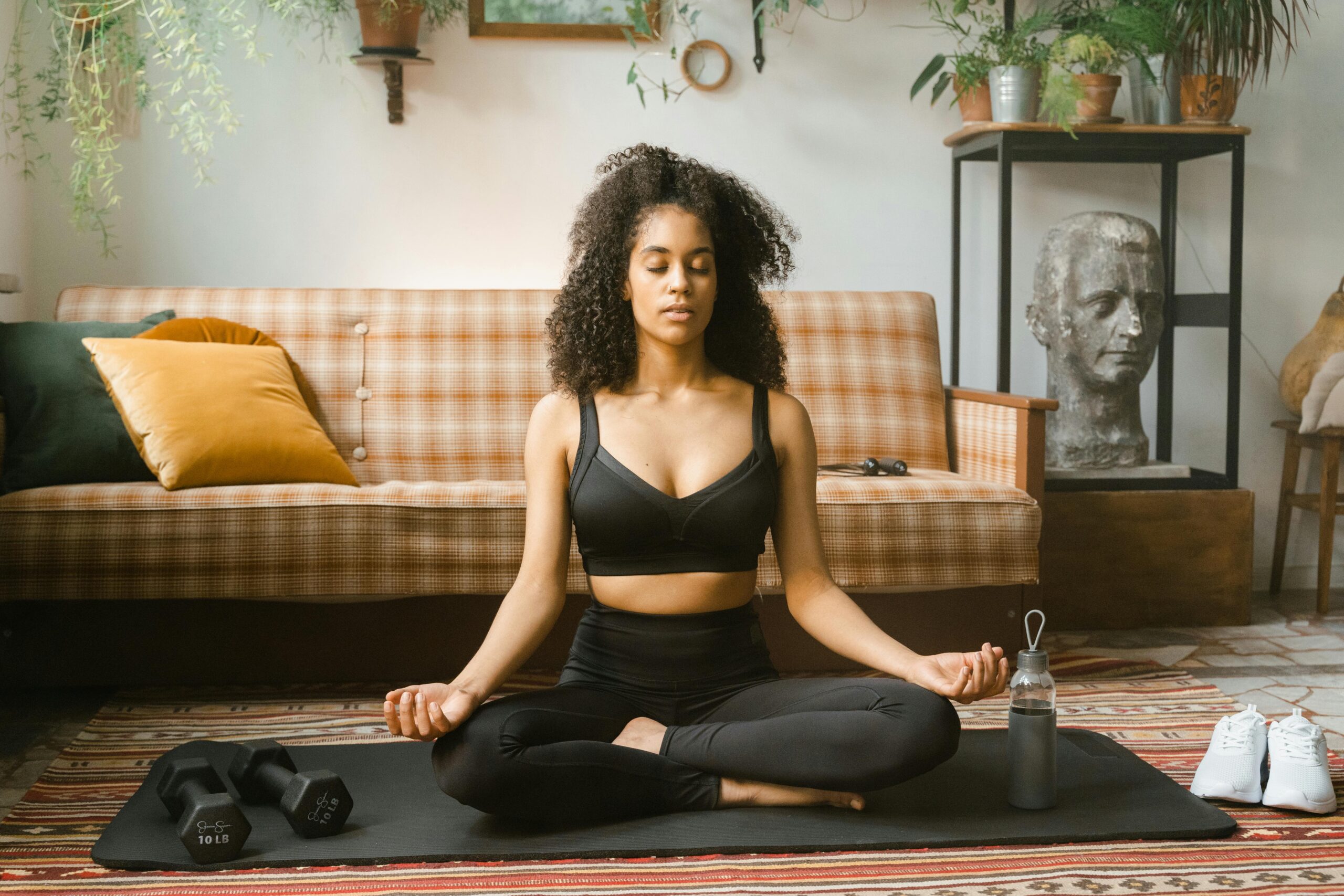Physical activity is important in the pursuit of a healthy lifestyle. It offers benefits that extend far beyond just physical health. For Black women, the path to working out regularly is heavily impacted by the effects it has on their hair. These complexities are deeply rooted in societal expectations, cultural norms, and personal grooming rituals.
A systematic review published by the National Library of Medicine found that Black women are less likely to engage in physical activity compared to their counterparts of other races. The reasons behind this disparity are multifaceted, including individual, social, economic, and environmental factors. One of the largest reasons in the study, however, was due to the intricate dance between physical activity and hair care.
Navigating the Tangled Terrain of Black Women’s Hair and Health
Seasoned fitness trainer Charli Harris says most of her clients are Black women.
“I see quick fixes like scarves, turbans, hair clips, and bandanas for coverage during a session or class,” Harris explained. “Others come with their hair in two-strand twists that they wear throughout the workout week and save the twist out for the weekend.”
For many Black women, hair isn’t merely a matter of aesthetics but a symbol of identity and pride. The fear of “sweating out” an intricately crafted hairstyle plays into the decision of what type of work out is acceptable.
Black women often find themselves walking a tightrope when it comes to their well-being versus their hair. Harris herself exemplifies this delicate balancing act, meticulously planning her hairstyles to align with her workout regimen.
“I actually just planned my styles out for the entire summer,” Harris explained. “In my opinion, I am not in favor of the unpredictability of wearing my natural hair so I often opt for some variation of braids that last about 6 weeks or other protective styles that can last for 2-3 weeks.”
While the complexities of the Black woman’s relationship with physical activity may seem daunting, it’s important to note that a choice must be made. Self-care encompasses not just physical fitness but also the preservation of cultural identity and personal grooming practices.
As Harris explains, “If you really are committing to a lifestyle change, you’ll alter your preferences to suit your needs.”
